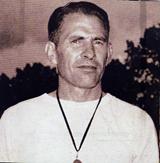
1947
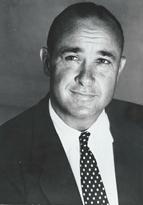
1948-52
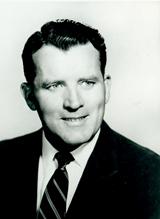
1953-58
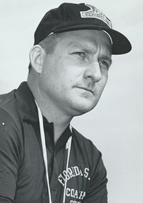
1959
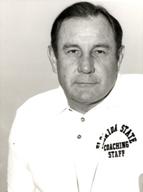
1960-70
FSU Football History in a Nutshell
By Jim Joanos
Florida State College, as the institution was named then, first fielded an intercollegiate football team in 1902. For three seasons, 1902-04, Florida State, wearing purple and gold, competed. The 1904 team, after defeating Stetson, 19-6, was awarded the Florida Times Union's College Cup and proclaimed the State of Florida's Championship Team for that year. But, in 1905, the Florida legislature converted the school into a woman's only institution. Consequently, there was no intercollegiate football at the school for forty-two years.
In 1947, following World War II, Florida State again became coeducational. Its name was changed to "The Florida State University," and it immediately resumed participation in intercollegiate football. A team, composed mostly of returning military veterans, was quickly organized under Coach Ed Williamson, and despite losing all five games that it played, had a "wonderful season." After the first game, students selected, "Seminoles" as the name for FSU's athletic teams.
Dr. Don Veller was the head coach from 1948 through 1952. During the first four years of that tenure, the Seminoles reeked havoc upon other small colleges in the Southeast, compiling a record of 32 wins and but 4 losses. This included a 19-6 victory over Wofford College in Tampa's Cigar Bowl following the 1949 season. It also included three Dixie Conference Championships (1948, 49 & 50). FSU never lost a conference game during the three years that it was a member of that strictly amateur organization that did not allow its members to award athletic scholarships. By 1951, however, FSU was awarding football scholarships and scheduling larger universities with mainstream athletic programs, consequently after a 1-8-1 season, it changed coaches.
Tom Nugent, charismatic, with a flair for the dramatic, coached the Seminoles from 1953 through 58. The players themselves personified the Nugent aura. Among them were numerous free spirits such as Lee Corso, Bert Reynolds, and Vic Prinzi. During the Nugent years, the team made its way into the world of major college football. The team compiled a Nugent tenure record of 34-28-1. Milestones included participation in two bowl games (Sun Bowl, following the 1954 season and the Bluegrass Bowl, following the 1958 season), the first victory over an SEC team (Tennessee, 1958), and beginning the annual series against the University of Florida (1958). In 1959, Nugent moved on to be the head coach at the University of Maryland.
Perry Moss coached FSU for one season (1959) during which the team suffered a 4-6 losing season.
Bill Peterson was FSU's head coach for eleven seasons from 1960 through 70. Under his command, the team became one that could win consistently against some of the better teams in the country. Also, FSU became a pioneer in developing a forward pass, open, pro-style of offense. Peterson's two best seasons were the 1964 and 1967 ones. The 1964 team, under the leadership of quarterback Steve Tensi and wide receiver Fred Biletnikoff, FSU's first ever consensus All-American, compiled a record of 9-1-1. This included major victories over Kentucky, then ranked number 5 in the country; the first ever in modern times over the University of Florida and a 36-19 beat down over Oklahoma in FSU's first ever Gator Bowl Game. That team also featured a great defense popularly called the "Seven Magnificents" and the "Forgotten Four." The 1967 team boasting All-Americans, Quarterback Kim Hammond and Wide Receiver Ron Sellers went 7-2-2 which included a dramatic 37-37 tie against Alabama, a first ever victory at Florida Field, and a most exciting 17-17 tie with Penn State in the Gator Bowl Game. In addition to the two Gator Bowls, the Seminoles under Peterson played in two other post-season bowl games, the Sun against Wyoming (1966) and the first ever Peach Bowl against LSU (1968).
Larry Jones was hired to follow Peterson. His first season(1971) was a good one as the team went 8-4 which included a thrilling 38-45 loss to Arizona State in the first ever Fiesta Bowl Game. The 1972 season started most promising with four straight victories but FSU lost the fifth game to Florida and stumbled thereafter to end up 7-4 and no bowl bid. The Spring that followed was disastrous as a large number of players left the team amidst a tough spring training program and a blistering series of articles in the St. Petersburg Times criticizing FSU's training methods. Consequently, FSU lost every game of the 1973 season.
Darrell Mudra followed Jones as head coach and served in that capacity for two years. Two very memorable games during Mudra's first FSU season included leading a mighty Alabama team coached by Bear Bryant throughout the game until a last moments field goal brought defeat, and the 21-14 victory at the University of Miami ending FSU losing streak of 20 games. Mudra, a future Hall of Fame coach, did an excellent job of recruiting and set the stage for later development.
Bobby Bowden came to FSU from West Virginia in 1976. He had previously been an assistant here in 1964 and 65. In his first season, the team went 5-6 but never had a losing season thereafter. In Bowden's 34 seasons, the team participated in 31 postseason bowl games. The 1979 team with a quarterback tandem of Jimmy Jordan and Wally Woodham had a perfect 11-0 regular season before losing to Oklahoma in the Orange Bowl. From 1987 through the 2000 season, 14 seasons, FSU never ranked lower than fifth in the final end of the year AP poll. In 1987 & 92, they finished second. FSU became a member of the Atlantic Coast Conference and won 12 conference championships during the 1992-2005 span of time. FSU, under Bowden played in 5 National Championship Games, winning two of them. The 1993 team led by Heisman Trophy Award winner, quarterback Charlie Ward, beat Nebraska 18-16 in the Orange Bowl to win FSU's first National Championship with a record of 12-1. The 1999 Seminoles were the wire-to-wire national first place team throughout that season. The national championship was won against Virginia Tech, 46-29 at the Sugar Bowl Game. Chris Weinke, the quarterback of that team won the Heisman Trophy the following season.
Jimbo Fisher began his career as head coach with the 2010 season. He had come to FSU as the Offensive Coordinator in 2007. Fisher's first year as head coach was quite successful as the team went 10-4, including victories over in-state rivals Miami and Florida and South Carolina in Atlanta's Chick-fil-a Bowl Game. As this is written, the Seminole faithful are most hopeful that the 2011 season will bring a return to the Glory Years of yesterday.
 1947 |
 1948-52 |
 1953-58 |
 1959 |
 1960-70 |
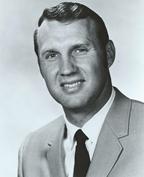 1971-73 |
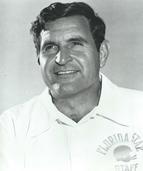 1974-75 |
 1976-2009 |
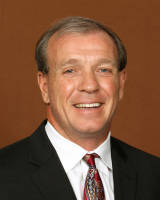 2010-Present |